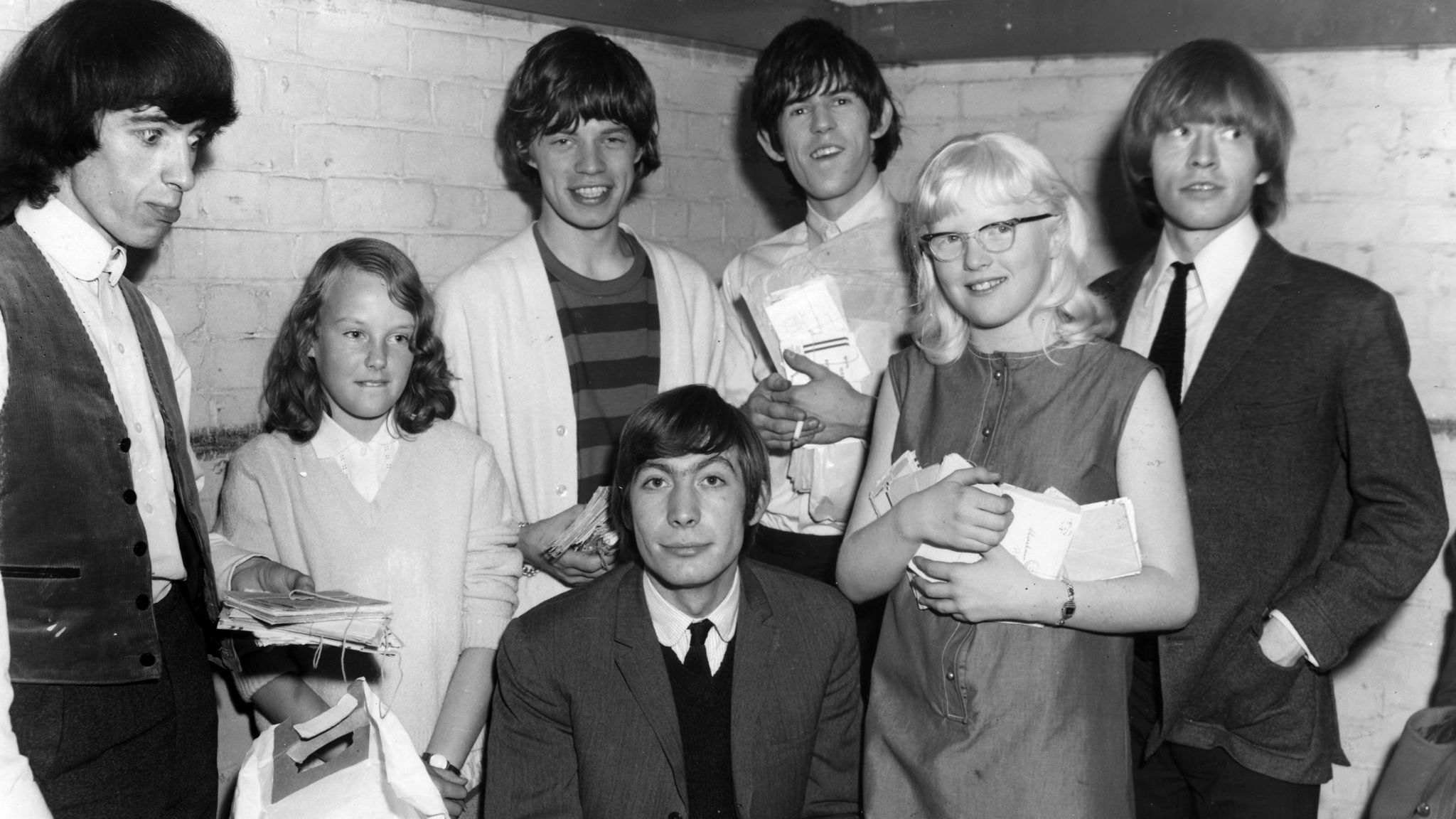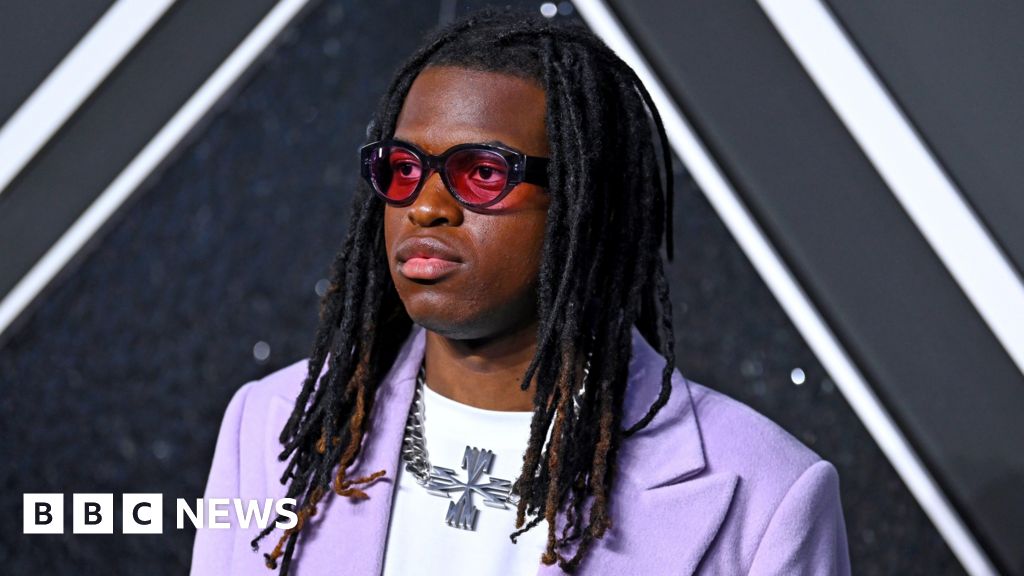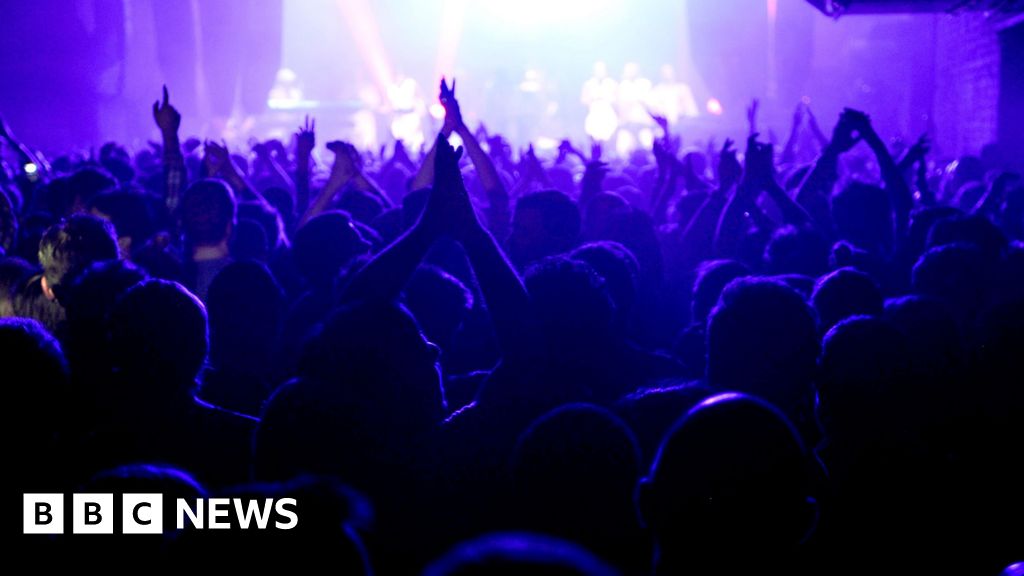ARTICLE AD BOX
 Image source, Dave Kindred/East Anglian Daily Times
Image source, Dave Kindred/East Anglian Daily Times
Competition winners met the Rolling Stones backstage at the Ipswich Gaumont
By Andrew Woodger
BBC East
"Keith Richards, even then, looked the part of the rock star and his teeth were rotten," remembered music journalist Hugh Fielder on his first assignment, when he was 16 years old.
The Cambridge grammar school boy got the Friday afternoon off to see the Rolling Stones in Ipswich on 9 October 1964 - on condition he wrote an essay about it.
"It was tremendously exciting. These were the days of the package shows and while I wrote that the Stones were clearly the headliners, it was my first experience of seeing a US soul act - Inez and Charlie Foxx - and you could see where the Stones were getting some of their sound from," said Fielder.
Whereas in their 60th anniversary shows this year, where the Stones played for around two hours, their 1964 set lasted "about 40 minutes".
Image source, Dave Kindred/East Anglian Daily Times
Image caption,The second show at the Gaumont featured a stage invasion of about 150 people during the Stones' set
Fielder, now 74, went on to be news editor for weekly music paper Sounds - one of the big three along with New Musical Express and Melody Maker, which were selling hundreds of thousands of copies in their 1960s and '70s peak.
He currently writes for magazines including Classic Rock.
In 1964, the Stones released their self-titled debut album and had their first UK number one single, external with It's All Over Now.
On the autumn package tour, they were the headline act above Inez & Charlie Foxx, Mike Berry & The Innocents, Simon Scott & the Le Roys, The Mojos and Don Spencer.
'Liberally-minded' school
Shows at the Ipswich Gaumont [now called the Regent] were at 18:35 and 20:45, and the young Fielder and a friend had tickets for the early show.
"The Beatles had played at the Cambridge ABC Regal and I hadn't been because a friend said it was pointless going because all you could hear was screaming, but we thought the Stones would be different," he said.
As someone who had regularly been to watch Ipswich Town during their League Championship-winning era under Alf Ramsey, he knew he would have to bunk off early from Cambridge Grammar School for Boys [now Netherhall School, external] to fit in a two-hour journey by train and not miss the start.
"My father Dennis was a teacher at Cambridge's other boys' grammar school [Cambridgeshire High School for Boys, now Hills Road Sixth Form College] and he said my school fancied itself as a more liberally-minded place, so we should just ask and see what they said," he said.
"The deal with the headmaster, Mr Scarisbrick, was that I should write an essay about it."
Unfortunately, he never got his essay back, but said he remembered the gig clearly.
Image source, Hugh Fielder
Image caption,Hugh Fielder said his school essay was arguably "the start of my journalistic career"
Fielder said the Stones' set included Route 66, Not Fade Away and It's All Over Now.
"I wrote about how the Stones were clearly the headline act. It was tremendously exciting," he said.
"I'd seen Gerry & The Pacemakers and The Hollies in Cambridge, but the Stones were better than any band I'd seen before, just in terms of playing ability. They locked hard and heavy.
"Each member had their own character - Bill Wyman on bass seemed older, Charlie Watts [drummer, who died last year] was unfussy.
"Brian Jones and Keith Richards [guitarists] seemed in friendly competition.
"Singer Mick Jagger had come back from the US and had seen James Brown and he was now dancing.
"With Inez & Charlie Foxx, it was the first time I'd seen a US soul band, and I could see that was where the Stones were getting some of their sound from.
"The audience was fairly split between boys and girls, so there was some screaming, but the Stones didn't have the hysteria The Beatles were getting, because it was more of a male audience."
Image source, Dave Kindred/East Anglian Daily Times
Image caption,Bill Wyman (far left) said stage invasions "were common with us at the time"
Image source, .
Image caption,The ticket price of 10/6 (10 shillings and sixpence) is about 53p in decimal currency
Fielder only went to see the early show in Ipswich, whereas the East Anglian Daily Times's, external photographer Dave Kindred went to the later show, which featured a stage invasion.
As the paper's 18-year-old junior snapper, he was sent by his editors.
"This long-haired bunch of gits was not in their news-frame - it was just another show in town," said Kindred, now 76.
"About 150 people decided to join the band on stage.
"There was no aggression, no seats were ripped up, but nobody quite knew what to do when they got up there - it petered out and they left the stage."
Image source, Dave Kindred
Image caption,Dave Kindred said his MPP camera had to be reloaded with a fresh plate, meaning there was a 30-second gap between taking photos
Kindred had been primarily sent to take pictures backstage of fans who had won a competition, external arranged by the venue's manager David Lowe, to meet the band and get autographs.
"I was definitely a fan before I went and one of my regrets is not having taken an autograph book myself."
Kindred also photographed the Beatles later that month when they made their second visit to the Gaumont.
Of the Stones's gig, he added: "The average pub gig now has more gear than they had on stage - by modern standards it was not loud, but the sound did fill the 2,000-seat theatre."
'Riotous evenings'
Stones' bassist Bill Wyman, who lives in Suffolk and retired from the band in the early 1990s, said stage invasions were "the norm" for them.
"It was just another straightforward two-show package tour evening with nothing out of the ordinary happening," he said.
"These riotous evenings were common with us at the time - it happened at every concert in those days.
"The brother/sister duo Inez & Charlie Foxx were great, with their monster hit Mockingbird."
Recalling the autograph signing with fans, he said: "It was often done with stacks of autograph books in the dressing rooms rather than live backstage, however we did that here."
Image source, Dave Kindred/East Anglia Daily Times
Image caption,Drummer Charlie Watts, who died last year, signs an autograph backstage
So what did Mr Scarisbrick say about Fielder's essay?
"I handed it in and when I walked passed him later that week he just said 'sounds interesting' - I never got a mark as such," said Fielder.
"In retrospect you could argue it was the start of my journalistic career.
"My next piece would have been after I went to West London Polytechnic in 1966 to read business studies, and after that I worked as a writer for architecture and accountancy magazines, and then saw the advert for a vacancy at Sounds in about 1974 and started writing more seriously about music.
"By 1976, Sounds was the first to get on the punk bandwagon, but, at 28, I was too old to write about that, so I got the pick of the blues bands and singer-songwriters, which was my area."
Image source, Dave Kindred/East Anglian Daily Times
Image caption,Keith Richards (who went by the professional name of Richard at the time) "looked the part of the rock star" according to Hugh Fielder
Image source, .
Image caption,The Stones had just released their debut single Come On and were third on the bill when they played the Gaumont in 1963
Image source, Hugh Fielder
Image caption,Hugh Fielder had been a choirboy at Clare College in Cambridge, but said it was "fair to say" the Stones were an inspiration for his school band The Rambling Blues
Fielder also has an anecdote about Roger Waters of Pink Floyd, who wrote about his negative experiences of his Cambridge grammar school in the number one single Another Brick In the Wall (Part II), which features the lyrics "hey teacher, leave them kids alone" and "we don't need no education".
"My father had taught him and [original Floyd singer/guitarist] Syd Barrett who he described as a 'sensitive boy', and I later mentioned it to Roger, who said he had got on with my father, and confirmed he wasn't the inspiration for that song!"
With thanks to the Archant newspaper group for granting permission to reprint Dave Kindred's photographs.

 2 years ago
31
2 years ago
31








 English (US)
English (US)